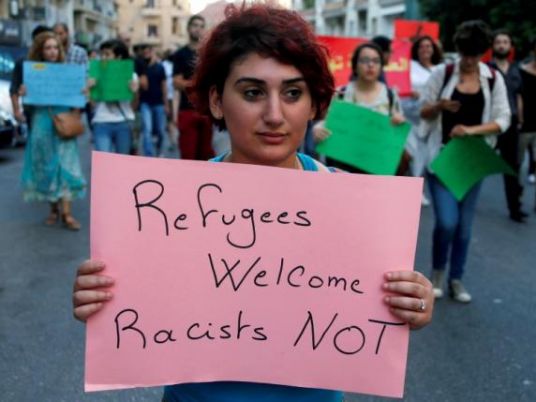
The ECJ has ruled that refugee minors have a right to family reunifications, even if they turn 18 during the application process. The case could have a major impact on German Chancellor Angela Merkel’s government.
The European Court of Justice (ECJ) ruled on Thursday that unaccompanied refugee minors retain the right to family reunification even if they come of age during the asylum application process.
The ruling from the European Union’s top court could impact tens of thousands of unaccompanied minors who applied for asylum within the bloc, while shaking up immigration hardliners in Germany who want to curb family reunifications.
Advocate General Yves Bot issued an opinion prior to Thursday’s decision, saying that the court should retroactively grant family reunifications to those affected in cases where they come of age during the asylum process.
What’s the case about? The case concerned a young girl from Eritrea who applied for asylum in the Netherlands who turned 18 during the process. After her asylum application was granted, she applied for her parents to join her — citing the right of unaccompanied minor refugees to family reunification — but her request was denied by local Dutch authorities who said it no longer applied because she was no longer a minor.
How many refugees could be affected? Numerous refugees could be affected in Germany alone. According to figures from Germany’s Federal Office for Migration and Refugees, some 66,300 unaccompanied minors entered Germany between January 2015 and October 2017. The office did not provide exact figures on the number of those who turned 18 during their asylum applications.
How family reunification works in Germany: In general, someone who has been granted asylum or refugee status has the right to bring immediate family members to Germany, according to the Federal Office for Migration and Refugees. Immediate family members include the spouse, children and – only if the refugee is a minor – siblings and parents. A two-year suspension on family reunifications was introduced in 2016 for persons entitled to subsidiary protection. Refugees who were officially granted this protection after March 17, 2016 now have to wait until March 16, 2018 before they can even apply for family reunification.
What could the ruling mean for Germany? The court’s decision will likely ramp up tensions within German Chancellor Angela Merkel’s government as the conservative Bavarian Christian Social Union (CSU) and the Social Democrats (SPD) butt heads over family reunifications for refugees. CSU party head and Interior Minister Horst Seehofer has been portraying himself as an immigration and refugee hardliner. His rhetoric has led to fears within the SPD that he may turn back on a coalition deal to allow a maximum 1,000 people per month to arrive in Germany for family reunifications.




